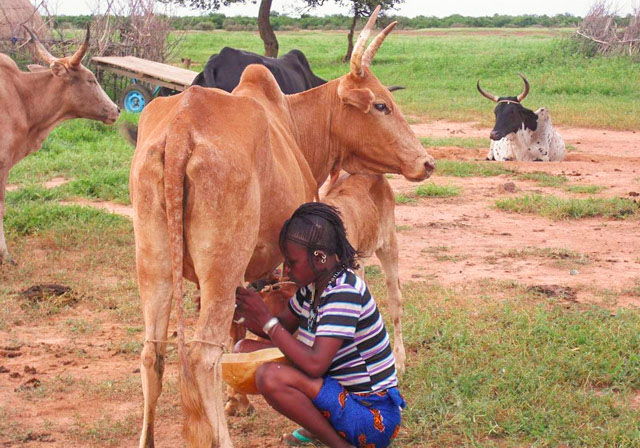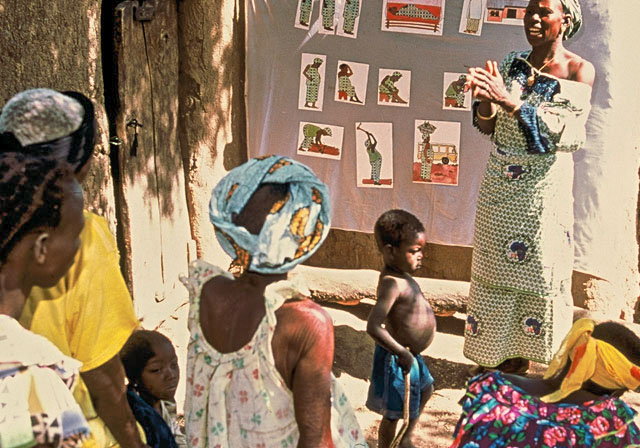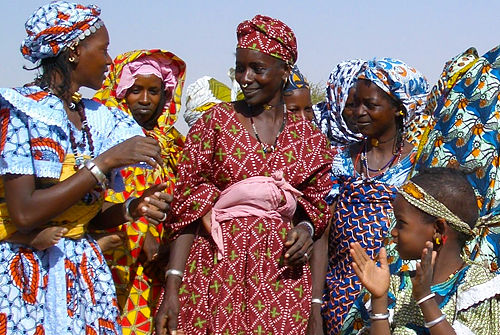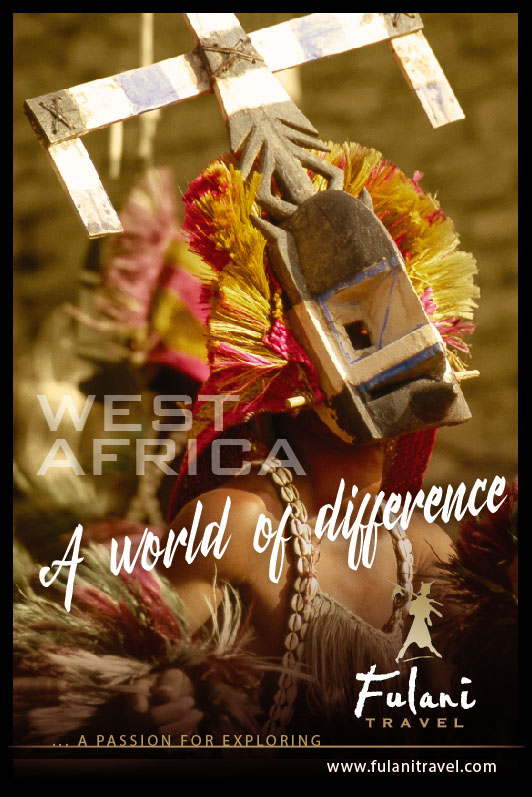The Fulani are pastoral people who have always made their living from herding cattle in the Sahel, which is the dry, semi-desert area south of the Sahara. Unprecedented droughts in the 1970’s and 80’s meant that 90% of cattle died. It has been difficult for pastoral people to rebuild their lives as they do not have access to viable land for farming.
There are a number of Fulani villages in our project area, which is in the poorest 5th region of Mali. We have so far been working with the women in our midwifery training and water resources programme.
I was very shocked to see how difficult things have become in the Fulani villages when I was in Mali in January. The women said their greatest need was food for the children, and that they cannot afford to buy this. We have identified the following projects, which could be an enormous help:
REVOLVING CREDIT Increasing Milk Production

This project would be initially with the poorest women in six Fulani villages where things are very difficult. Most of the children are severely malnourished and sick, and the families have no means of income for buying food. People survive by herding cattle belonging to farming people. They are paid, according to tradition, three sacks of grain a year for this, and are entitled to milk from the cows. Milk is the main source of revenue allowing women to buy food. Since grazing and pasture has diminished, and farming people now gather the stalks of their crops to use as cooking fuel, the cows no longer produce milk, so they are caught in a poverty-trap. Three sacks of grain a year do not provide sufficient calories for a family. We would like to provide credit for women to buy and feed their cows on cotton-seed residue. Cotton is grown in southern Mali, and the post-harvest seed is widely available and is sold to people who own cows. This is very nutritious and fattening for cows enabling them to produce milk.
If a cow is given 1.5 kgs measure of cotton-seed per day, at a cost of 32p/day, it can produce 2-4 litres of milk, which can be sold at 45p/litre. This is quite a profitable enterprise in Mali. The children can then consume the milk (which is particularly rich and nutritious) and milk sales would allow women to purchase a various food in the market for their families. Cows need supplementary feeding in a normal year from December-June. From late June-November there is sufficient grazing for the cows from rain-fed pasture. We would therefore like to provide credit to the Fulani women for a 7-month period with the initial loan being repaid each month into a Revolving Credit Fund for the women to develop further activities to make their lives more secure again.
Joliba has been working since 1992 on microcredit in this area. We currently have £233,000 circulating amongst over 11,000 women, and the credit has been an extremely useful tool for development. All of the women’s groups which have been established for a few years have built substantial funds for themselves, allowing them to take on a range of activities such as sheep or pig-raising, trading in market goods, planting crops, growing vegetables, and many other activities. This has helped to eliminate malnutrition in these villages, and has allowed the women to provide medical and schooling resources and is some means of security in years of drought.
The aim in this case would initially be to provide cattle food for one cow per women in the poorest 145 families in six villages. The funds would gradually be repaid for the women to develop further activities and to allow more women to participate in the scheme.
Joliba is addressing the sustainability of long-term livelihoods by working with volunteer communities to regenerate pasture and tree resources, as well as teaching people to make stoves which consume less fuel. These schemes are having phenomenal success.
BUDGET
Year 1 £ (cost per year)
800 x 50 kgs sacks of cotton seed residue @ £12.50 = 10,000
Training for the women in organisation of their credit group = 200
Monitoring of the activities by Amadou Barry, a Fulani Community worker 12 days a month @ £5 /day = 720
Total cost = 10,920
Years 2-4
Monitoring of the activities and funds by a community worker for 6 days a month @ £5.00 a day = 360
Total cost over 4 years = 12,000
LITERACY TRAINING

No Fulani children go to school. Women have cited Literacy Training as their other greatest need. If they could write numbers and their language, and this would put them in a much stronger position financially. The women also felt it would help them morally and spiritually if they were literate. They could start learning a lot of things from books written in their language, and they felt they would begin to be “part of the world”. The women said if they had literacy training and cattle food, they would never need anything else.
Cost per year
Salary per month of the Literacy Trainer £150 x 12 months = 1,800
Moped fuel & repairs for Literacy Trainer @ £8 per month x 12 months = 96
Pens, notebooks and calculators for 145 women @ £6 each = 870
Total cost of literacy training per year = 2,766
Total cost of project for 4 years 2009-2012 = 11,064
DONKEY CARTS
People are unable to afford donkey-carts in Fulani villages. If they were able to have 2-4 donkey-carts per village, this would make an enormous difference. A donkey cart would allow significant cattle fodder resources to be collected from a wider area. Women said they would be quite happy to walk 50 miles to collect seed pods and other nourishing foods for the cows to make them give milk. A donkey-cart would also be a great help to women with collecting wood for cooking, and would means that people could reach new markets to sell craft goods they have made or milk.
2 donkey-carts per village at £195 each = 390
Cost for 6 villages = 2,340
It is estimated that these funds would be repaid over 3 years to allow further villages to obtain donkey-carts We have ongoing work in this region of Mali and we continue to monitor the projets funded for some time after their completion.
To make a donation, please contact:
The Joliba Trust 8 Nattadon Road – Chagford
Newton Abbot – Devon TQ13 8BE
Registered Charity 1059919
jolibatrust@hotmail.com
www.jolibatrust.org.uk


